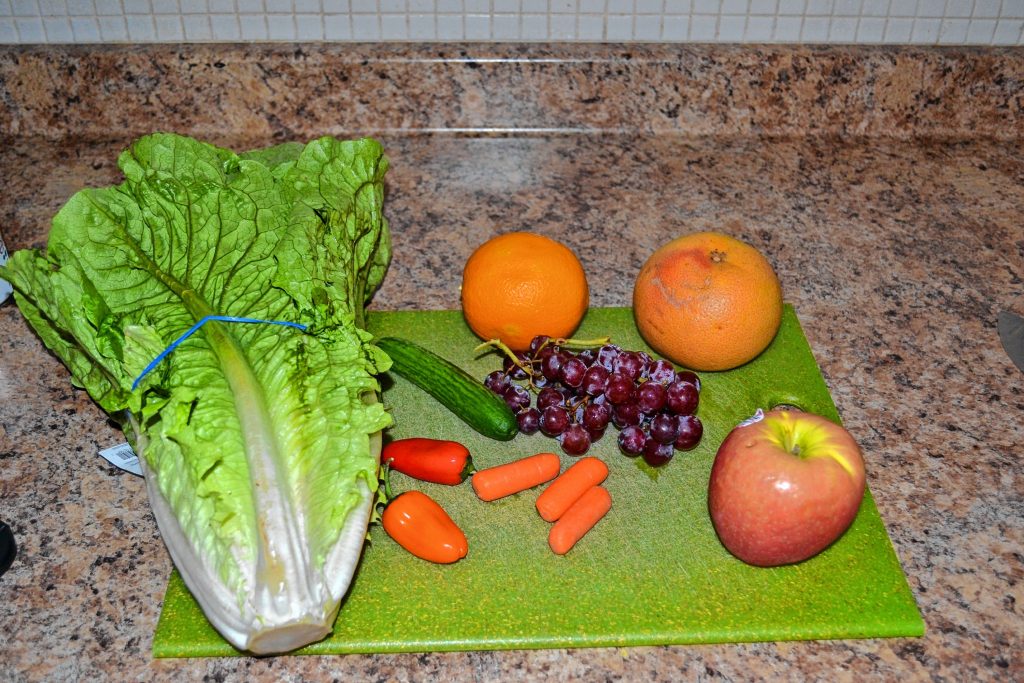If we had to guess, January has to be the month where the most people try to eat the healthiest.
It follows a six-week stretch where people’s eating habits are likely at their worst – plus the whole New Year’s resolution thing.
Although, from what we’ve heard, as hard as it can be to change your ways when it comes to food intake, it’s pretty easy to fall off the fruits and veggies wagon, especially when the calendar flips to February.
But before you go on a fried food marathon, followed by a dessert rampage, we want to introduce you to Hilary Warner. She’s a registered and licensed dietitian/nutritionist, as well as a health and fitness specialist and wellness coach from Nutrition Works on North Main Street. So while it’s safe to say she can cover many bases when it comes to getting healthy, we decided to tap into Warner’s expertise when it comes to the topic of eating healthy.
First and foremost, Warner is firmly in the camp that everyone should take a healthy approach to eating. It’s all about balance, making sure you incorporate fruits and veggies, whole grains and proteins to give your body everything it needs.
“I call it the Goldilocks approach,” Warner said. “We’re looking for just the right amount of everything – not too much, not too little.”
And let’s get this little factoid straight: Divorce the idea of eating healthy and losing weight. Like we said before, eating healthy is important and everyone should do it, but that doesn’t mean it has to be a crash diet.
“I typically encourage people not to diet because it’s not sustainable and very few people stick to it,” Warner said. “But there are elements of dieting that are helpful.”
Plus, eating more balanced will in theory help you shed a few pounds, if that’s what you’re looking to do.
One of the first things you should do when you’re trying to eat better is to take a look at what you usually eat. Do you eat a lot of fruits and vegetables, and how often? Are whole grains a part of your equation? And what is you protein intake like?
“I always start by asking questions about what they usually eat,” Warner said. “We’re just looking for balance.”
And it should be looked at more over the course of the day or week, and not just meal-to-meal specific.
It all comes down to balance and making sure you stick to the plan – at least most of the time.
It’s okay to have dessert or pizza, or whatever your go to unhealthy food is, as long as it’s done so through moderation.
“Giving yourself permission to eat some of those foods that are considered forbidden,” Warner said “And not feeling bad about it when you have it.”
One of the keys to eating healthy and maintaining what you’re trying to do is planning things out. A helpful tip is to sit down and plan out your meals for the week. That way, when you get home from a long day at work, you already have the ingredients for a great home cooked meal and it limits the temptation of ordering take out or going to the closest drive thru.
“If you’re going to eat well, you really have to be willing to go to the grocery store and buy foods that you can go home and prepare,” Warner said.
When you are hungry between meals (and it’s going to happen) just try not to grab cookies off the share table at work or a bag of chips from the vending machine. Incorporate things like nuts, dried fruit, actual fruit, yogurt, cheese and whole grain crackers or veggies and hummus.
And like when your body tells you it’s hungry and you put food into it, hydration works the same way. If you feel thirsty, take a drink of water and repeat when necessary. Also remember that you take in water from things like fruits and vegetables, so that will also count toward keeping your bodies hydration level on point.
“Our bodies have so much information to give us about how we’re treating them,” Warner said.
From here, it’s up to you. Good luck with eating a balanced diet and may it be a lifelong approach, instead of something you try out every Jan. 1.
“It’s thinking about why it’s important to you,” Warner said. “You have to have some reasons.”









